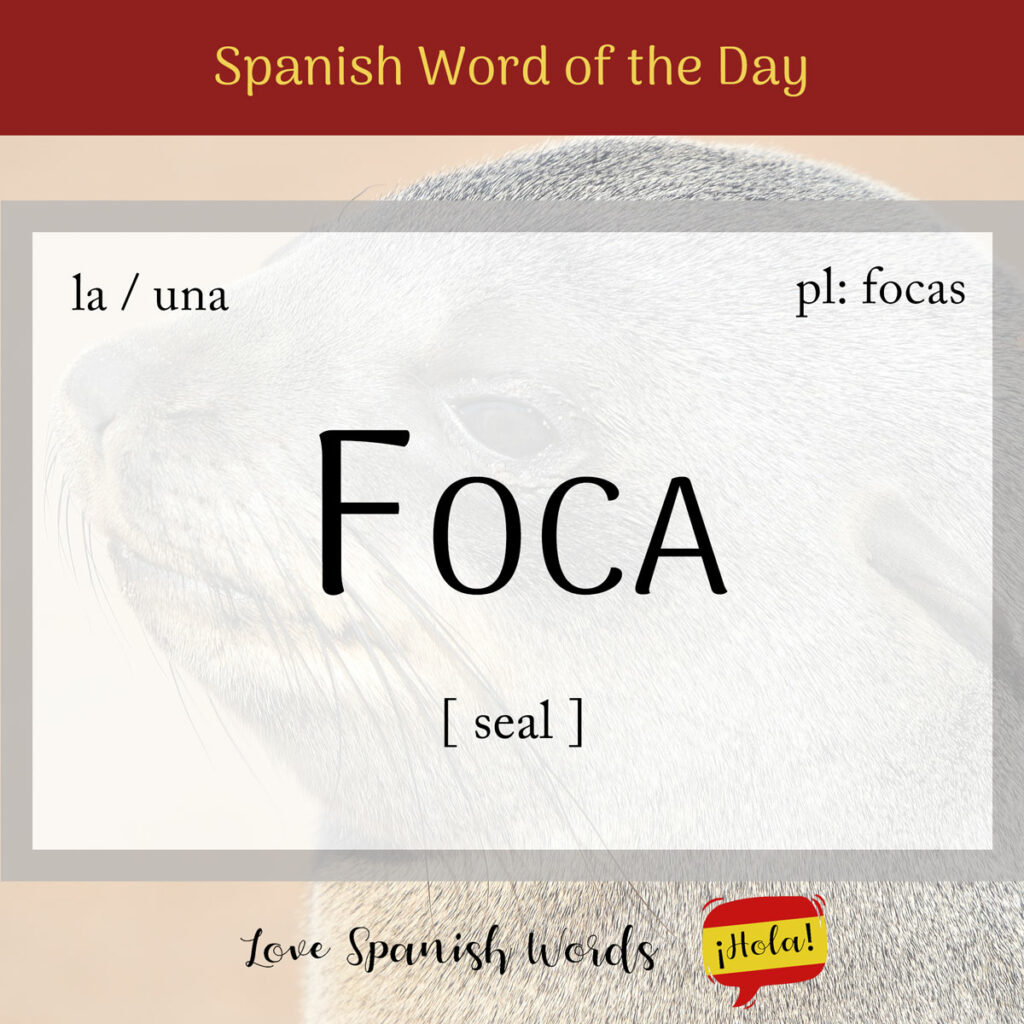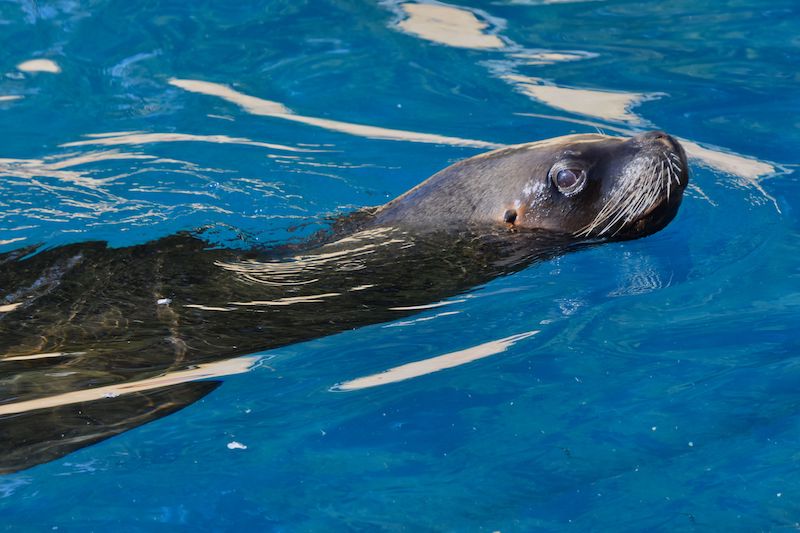The word foca comes from the Latin word phoca, which means seal. In Latin, phoca was used to describe the marine animal with the sleek body and flippers we know today. The Latin word derived from the ancient Greek word phōkē (φακός) and it also referred to the same animal.
Latin American Pronunciation
European Pronunciation

Foca is a feminine noun that takes the following definite and indefinite articles:
- la foca = the seal
- las focas = the seals
- una foca = a seal
- unas focas = some seals
Vi una foca en el mar durante nuestras vacaciones.
I saw a seal in the sea during our vacation.
Focas adapt well and live in many environments, from icy polar regions like the Arctic to temperate and tropical waters. They spend most of their time along playas arenosas (sandy beaches), costas rocosas (rocky coastlines), or nadando en el océano (swimming in the ocean).
These mammals are carnívoras (carnivores), meaning they eat meat. They are skilled hunters and primarily feed on calamares (squid), peces (fish), and other criaturas marinas (marine creatures) depending on their location. The diet of some focas even includes small pingüinos (penguins).
La foca de la playa estaba tomando el sol en la arena.
The seal on the beach was sunbathing on the sand.
Their bodies have powerful aletas (flippers) that make them agile swimmers. Focas have bodies designed to be hidronámicas (hydrodynamic), which means they can move easily through the water. Their physical characteristics include having a smooth shiny pelaje (coat) that can be plain, striped, or spotted. A notable physical aspect of focas is their bigotes (whiskers), which they use to help them feel their way around underwater.
Focas are social animals and therefore exhibit playful and social behaviors. They interact with each other and form grupos sociales (social groups) where they often engage in games. You often see them gathered in large groups along the coastlines.

Fun Fact:
Seals can hold their breath underwater for a long time, sometimes over an hour!
Baby seals are called crías (pups) and are usually born on land or ice. They are covered in soft fur when they are born, which keeps them warm.
There are many different types of focas, each with unique characteristics. Below are a few different types:
- foca común = harbor seal: common in coastal waters and they have spotted coats.
- foca elefante = elephant seal: known for their large size and long noses, and they live in colder waters
- foca leopardo = leopard seals: are fierce hunters with a leopard-like pattern on their coats and live in Antarctic regions
- foca de piel/ foca peluda = fur seals: have waterproof fur to stay warm in colder waters

Spanish idioms featuring ‘foca’
Estar como una foca
Literal translation: to be like a seal
English meaning: to be completely relaxed in a lazy-like manner
No ser una foca
Literal translation: to not be a seal
English meaning: to not be clumsy or useless in certain situations
Paracer una foca en el agua
Literal translation: to look like a seal in water
English meaning: to be someone who moves clumsily in an environment that is unfamiliar to them
Cantar como foca
Literal translation: to sing like a seal
English meaning: to sing very poorly or make unpleasant noises when singing

